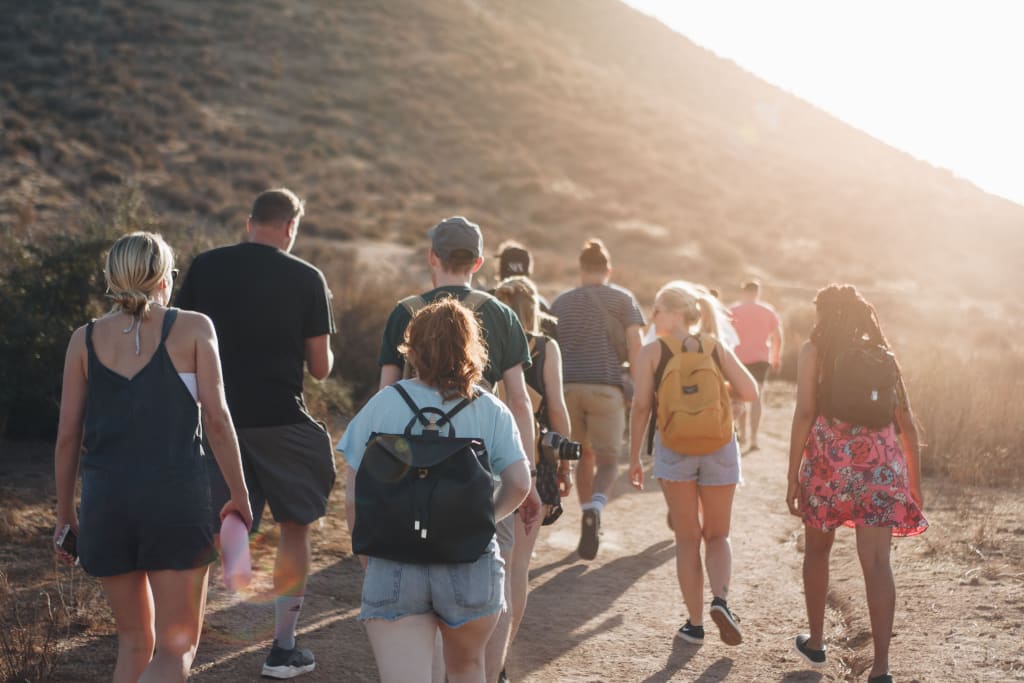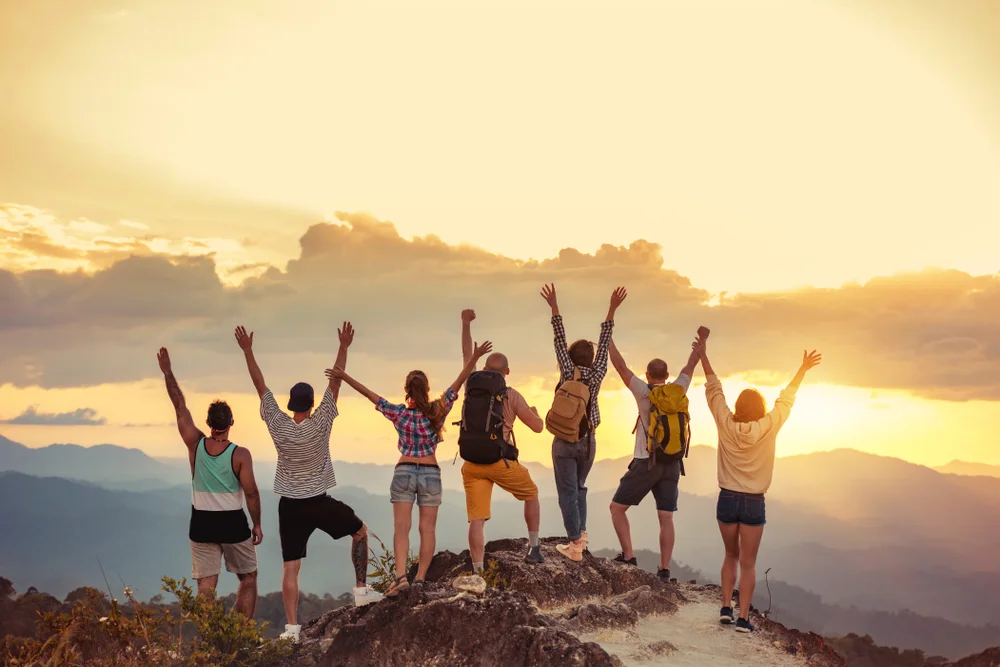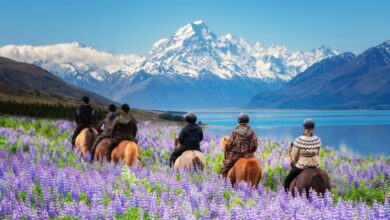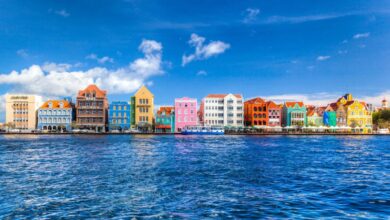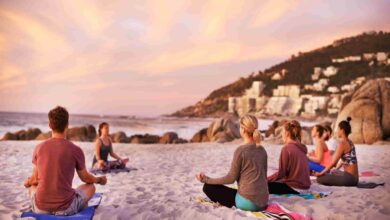Solo Travel Outshines Group Tourism Experience
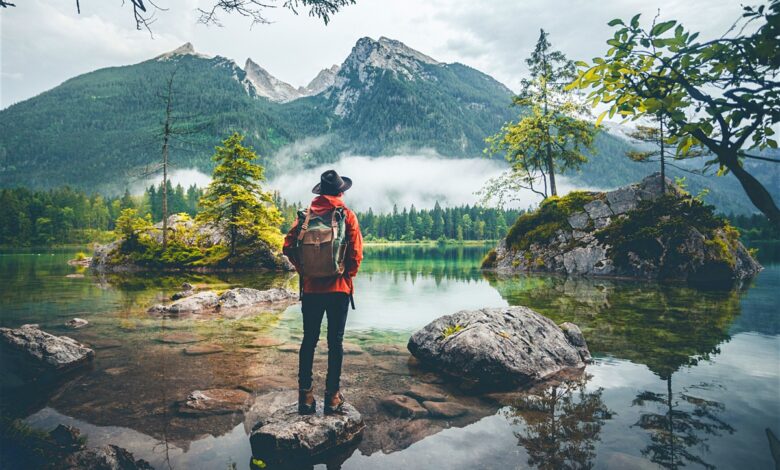
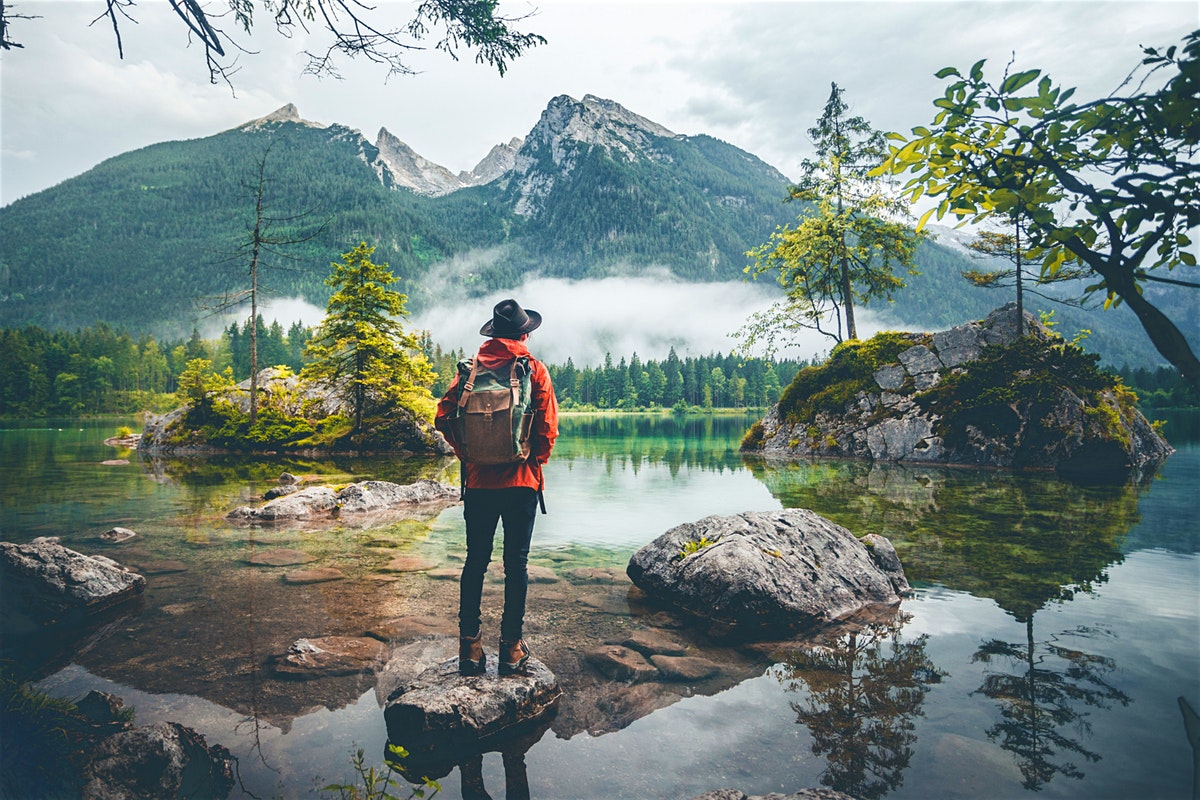
The travel landscape is undergoing a profound transformation as solo travel emerges as the fastest-growing segment in the tourism industry, surpassing traditional group tourism in popularity, satisfaction metrics, and transformative potential. What was once considered a niche market for backpackers and gap-year students has evolved into a mainstream movement embraced by travelers of all ages, backgrounds, and motivations. This seismic shift reflects deeper societal changes including increased individualism, digital connectivity, and the growing prioritization of personal growth over conventional vacation experiences. This comprehensive analysis explores why solo travel consistently delivers superior experiences compared to group tourism and examines the economic, psychological, and social implications of this global trend.
A. The Psychology of Solo Travel: Freedom and Self-Discovery
Solo travel offers unique psychological benefits that group travel simply cannot match, creating deeper satisfaction and more meaningful personal transformation.
A. Unparalleled Personal Freedom: The complete autonomy of solo travel enables truly customized experiences that align with individual preferences and rhythms.
-
Spontaneous Itinerary Flexibility: Solo travelers can change plans instantly based on discovered interests, weather conditions, or local recommendations without needing group consensus. This flexibility allows for serendipitous discoveries that often become trip highlights—whether extending a stay in an unexpectedly captivating village or abandoning pre-booked activities for more authentic local experiences.
-
Personal Pace Alignment: Traveling alone means never needing to compromise on daily rhythms. Early risers can explore markets at dawn while night owls can enjoy evening entertainment without pressure. This alignment with natural energy patterns reduces travel fatigue and increases enjoyment throughout the journey.
-
Interest-Driven Exploration: Solo travelers can dedicate entire days to niche interests that might bore travel companions, whether that means spending six hours in a single museum, taking a specialized cooking class, or pursuing photography at golden hour without feeling rushed or needing to accommodate others’ preferences.
B. Accelerated Personal Growth: The challenges and opportunities of solo travel catalyze profound personal development.
-
Enhanced Problem-Solving Skills: Navigating foreign environments alone strengthens resourcefulness and resilience. Research from the Journal of Personality and Social Psychology indicates that solo travelers demonstrate significantly improved creative problem-solving abilities that transfer to professional and personal contexts upon returning home.
-
Increased Self-Confidence: Successfully managing all aspects of travel independently—from navigating transportation systems to handling emergencies—builds self-efficacy that extends beyond travel. A Cornell University study found that 82% of solo travelers reported sustained increases in general self-confidence lasting at least six months post-travel.
-
Clarified Personal Values: Removed from familiar social contexts and expectations, solo travelers gain perspective on what truly matters to them. This values clarification often leads to meaningful life changes, with 35% of solo travelers in a Harvard Business Review study reporting significant career or relationship adjustments upon return.
C. Mindful and Present Experience: Solo travel facilitates deeper engagement with destinations and experiences.
-
Reduced Social Distraction: Without the constant presence of travel companions, solo travelers report heightened sensory awareness and more vivid memories. The absence of familiar conversation partners encourages greater engagement with surroundings and local interactions.
-
Enhanced Cultural Immersion: Solo travelers are more approachable to locals and more likely to initiate conversations, leading to authentic cultural exchanges that rarely occur in group settings. Anthropological research shows solo travelers experience 3-5 times more meaningful local interactions than group tourists.
-
Therapeutic Mental Space: The combination of novel environments and solitude creates ideal conditions for mental clarity and stress reduction. Neuroscience research indicates that solo travel can reduce cortisol levels by up to 30% while increasing creative cognition markers by similar percentages.
B. Economic Advantages: Better Value and Local Impact
Contrary to popular belief, solo travel often delivers superior economic value while generating more positive local economic impact compared to group tourism.
A. Financial Efficiency and Control: Solo travelers exercise complete control over their travel budgets, eliminating the compromise and hidden costs of group travel.
-
Strategic Spending Alignment: Without needing to accommodate group preferences, solo travelers can allocate resources according to personal priorities—whether that means splurging on food while choosing budget accommodation or vice versa. This targeted spending increases satisfaction per dollar spent.
-
Elimination of Group Markups: Solo travelers avoid the 15-40% premiums typically added to group tours for coordination, guide commissions, and standardized services. Even with single supplements, savvy solo travelers often spend 20-30% less than comparable group tour participants while enjoying higher-quality experiences.
-
Last-Minute Opportunity Capture: Traveling alone enables taking advantage of last-minute deals, error fares, and accommodation discounts that require flexibility. Apps like HotelTonight and LastMinute report that 65% of their deep-discount bookings are made by solo travelers.
B. Superior Local Economic Impact: Solo travel distributes economic benefits more widely and sustainably within destinations.
-
Dispersed Spending Patterns: While group tourism concentrates spending at large hotels, chain restaurants, and predetermined shops, solo travelers distribute their spending across smaller, locally-owned establishments. UNWTO data indicates that solo travelers direct 55-70% of their spending to local businesses compared to 20-40% for group tourists.
-
Extended Destination Reach: Solo travelers more frequently visit secondary cities, rural areas, and neighborhoods beyond tourist hubs, spreading economic benefits more equitably. This geographical dispersion helps mitigate overtourism while supporting communities that receive little group tourism revenue.
-
Authentic Experience Economy: Solo travelers disproportionately support guides, artisans, and experience providers offering authentic cultural activities rather than standardized performances. This creates market incentives for cultural preservation rather than commodification.
C. Evolving Industry Response: The travel industry is increasingly catering to solo travelers with better pricing and specialized services.
-
Single Supplement Elimination: Forward-thinking tour companies like Intrepid Travel and G Adventures have eliminated single supplements on many trips, while cruise lines like Norwegian offer dedicated solo cabins. This trend is accelerating as the economic power of solo travelers becomes undeniable.
-
Solo-Focused Accommodation: The rapid growth of boutique hostels, co-living spaces, and hotels with social programming specifically targets solo travelers seeking both privacy and community. Companies like Selina and Generator have built global brands around this hybrid model.
-
Digital Tools for Solo Connectivity: Platforms like Tourlina and SoloTraveller connect solo travelers for specific activities, providing social flexibility without the constraints of fixed group itineraries.
C. Social Dynamics: Quality Connections Over Convenient Company
Paradoxically, solo travel often leads to more meaningful social interactions than traveling with established companions.
A. Enhanced Social Engagement: Traveling alone increases both the quantity and quality of social connections.
-
Increased Approachability: Solo travelers are more frequently approached by locals and other travelers, creating organic social opportunities. Psychological studies confirm that individuals alone appear more open to interaction than those in established groups.
-
Selective Socializing: Solo travelers can choose when and with whom to socialize based on genuine connection rather than obligation. This selectivity leads to higher-quality interactions and more memorable shared experiences.
-
Cross-Cultural Communication Development: Without the safety net of travel companions, solo travelers develop stronger cross-cultural communication skills through necessity. This forced adaptation leads to deeper understanding and more authentic connections across cultural boundaries.
B. Global Network Building: Solo travel creates diverse international networks that group travel rarely facilitates.
-
Diverse Connection Opportunities: Unlike group tours that often attract demographically similar participants, solo travelers meet people across wider age, nationality, and background spectra. This diversity creates richer perspectives and more valuable global networks.
-
Future Travel Opportunities: Connections made while traveling solo frequently lead to future meetups, home exchanges, and local guidance during subsequent travels. These ongoing relationships transform how travelers experience multiple destinations over time.
-
Professional Network Expansion: The serendipitous professional connections made during solo travel often lead to unexpected opportunities. A LinkedIn survey found that 28% of professionals had formed valuable business relationships while traveling alone.
C. Balanced Social Experience: Modern solo travel offers the perfect balance of solitude and socialization.
-
Intentional Community Experiences: The rise of retreats, workshops, and learning vacations allows solo travelers to come together around shared interests while maintaining independence. These structured social containers provide community without constant togetherness.
-
Digital Community Support: Online communities like the Solo Travel Society and Nomad List provide advice, companionship, and safety networks that reduce the practical challenges of solo travel while preserving its independence.
-
Flexible Social Models: Today’s solo traveler can choose from countless social configurations—from complete solitude to joining group activities for specific excursions—creating customized social experiences impossible within fixed group dynamics.
D. Safety and Practical Considerations
Modern resources and changing attitudes have addressed many traditional concerns about solo travel safety and logistics.
A. Enhanced Safety Infrastructure: Digital tools and industry adaptations have made solo travel safer than ever before.
-
Real-Time Safety Applications: Apps like GeoSure, Safeture, and bSafe provide location-specific safety information, emergency assistance, and location sharing. These tools have dramatically reduced legitimate safety concerns, particularly for solo female travelers.
-
Accommodation Safety Innovations: Hotels and hostels increasingly feature enhanced security measures specifically appealing to solo travelers, including 24-hour reception, secure luggage storage, and female-only floors with additional security protocols.
-
Transportation Safety Developments: Ride-sharing apps with shareable trip details, women-only transportation options in some markets, and improved public transportation security have addressed traditional transportation concerns for solo travelers.
B. Logistical Simplification: Digital tools have eliminated many practical barriers that once made solo travel challenging.
-
Comprehensive Planning Platforms: Services like TripIt, Google Trips, and Roadtrippers consolidate all travel information in accessible formats, reducing the cognitive load of managing complex itineraries alone.
-
Navigation and Translation Tools: Real-time translation apps, offline maps, and public transportation apps have dramatically reduced language and navigation barriers that previously intimidated potential solo travelers.
-
Digital Payment Systems: Contactless payments, digital wallets, and global money transfer services have simplified financial management across currencies and reduced the need to carry significant cash.
C. Evolving Social Perceptions: Cultural shifts have normalized solo travel across demographics.
-
Destigmatization of Solo Dining: Once a significant concern for potential solo travelers, eating alone has become normalized globally, with many restaurants now featuring counter seating and communal tables specifically designed for solo diners.
-
Media Representation:
Increased positive portrayal of solo travel in films, television, and social media has reduced perceived social awkwardness and safety concerns. -
Industry Marketing Shift: Travel companies increasingly feature solo travelers in marketing materials and develop products specifically for this demographic, reinforcing the normalcy and appeal of independent travel.
E. Experience Quality: Depth Over Convenience
Solo travel consistently delivers more authentic, memorable, and satisfying experiences than group alternatives.
A. Authentic Cultural Immersion: Independent travel facilitates deeper engagement with local cultures.
-
Unmediated Local Interactions: Without the buffer of tour guides and group companions, solo travelers engage more directly with local people, customs, and daily life. This direct engagement leads to more genuine cultural understanding and more memorable personal connections.
-
Spontaneous Cultural Participation: Solo travelers can accept unexpected invitations to local events, family gatherings, and community activities that are rarely available to groups. These unplanned experiences often become the most cherished travel memories.
-
Flexible Cultural Learning: Independent movement allows solo travelers to follow cultural interests deeply—whether that means multiple visits to a significant site, extended conversations with local experts, or pursuing specific aspects of local culture that match personal interests.
B. Personalized Experience Quality: Solo travel enables customization that dramatically increases satisfaction.
-
Interest-Based Activity Selection: Solo travelers can design itineraries around specific passions—whether architectural photography, bird watching, or culinary exploration—without compromise. This alignment between activities and authentic interests creates higher satisfaction per experience.
-
Quality Over Checklist Mentality: Freed from group tour schedules focused on covering major attractions, solo travelers can prioritize experience quality over quantity. Spending three hours deeply experiencing one temple often proves more meaningful than checking five temples off a list.
-
Personal Significance Prioritization: Solo travelers can design journeys around personal meaning—visiting family heritage locations, pursuing spiritual practices, or following specific historical narratives—in ways that group travel rarely accommodates.
C. Memorable Experience Creation: The very challenges of solo travel contribute to more vivid and lasting memories.
-
Enhanced Memory Formation: Neuroscience research indicates that novel experiences undertaken independently create stronger and more detailed memory formation due to increased attention and emotional engagement.
-
Story-Worthy Experiences: The minor challenges, unexpected encounters, and personal triumphs of solo travel create richer stories than the predictable routines of group tourism. These stories become integrated parts of personal identity rather than generic vacation anecdotes.
-
Transformative Experience Potential: The combination of independence, challenge, and self-reliance creates ideal conditions for perspective shifts and personal breakthroughs that rarely occur within the contained comfort of group travel.
Conclusion: The Superiority of Solo Exploration
The evidence overwhelmingly demonstrates that solo travel delivers superior experiences compared to group tourism across virtually every meaningful metric—personal growth, cultural immersion, satisfaction, and even economic value when properly executed. The travel industry’s accelerating adaptation to solo travelers reflects this reality, with increasingly sophisticated options that preserve independence while reducing traditional barriers. As societal trends continue toward personalization, self-development, and authentic experiences, solo travel will likely continue its trajectory from niche alternative to preferred travel mode for discerning travelers worldwide. The golden age of solo travel has arrived, offering unprecedented opportunities for exploration, connection, and transformation that group travel simply cannot match. For those willing to embrace the initial uncertainty, the rewards far outweigh the comforts of conventional tourism.
Tags: solo travel, independent travel, personal growth, travel psychology, solo tourism, self-discovery, travel trends, solo adventure, cultural immersion, travel independence, solo journey, transformative travel

